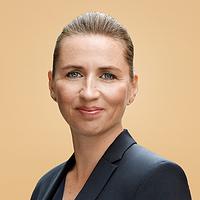Dear Excellencies. Dear colleagues and guests. Ladies and Gentlemen.
A warm welcome to the Copenhagen Migration Conference.
Thank you all for coming to Denmark today. I am proud that we are gathered here from so many countries and organisations.
We all face massive problems with irregular migration. Caused by cynical human smugglers.
An asylum system that is – unfortunately – broken. At great human costs.
***
The past four years have been turbulent.
The past four years have been turbulent.
We have witnessed a pandemic. Russia’s brutal war in Ukraine. An energy crisis. A food crisis. And now more unrest in the Middle East.
Geopolitics have returned. At the same time, as a global rise in irregular migration. Millions of people are on the move.
Between countries. Regions. And continents.
In uncertain times, more people will flee from conflict and violence.
Many embark on dangerous journeys in search of what they hope is a safe and better future.
Millions will be affected by climate change and natural disasters.
Migratory flows affect all of our countries. In one way or another.
Let me start by saying: I see the pressure this puts on the regions of origin. On the countries along the migratory routes. And on communities hosting large numbers of refugees.
In Europe, we have seen a rise in irregular arrivals at our borders.
Last year, the EU received more than 1 million asylum applications. Close to the numbers that we saw in 2015 and 2016.
This is deeply concerning.
***
***
No one leaves their home without a reason. But we simply cannot keep doing as we are used to.
All governments need to be in control of their borders. This is not something to leave in the hands of smugglers.
They should not be allowed to decide for us.
The smugglers do not care about the consequences. They hold people’s lives in their hands.
They take advantage of men, women and children and send them on dangerous journeys towards Europe.
For thousands, the journey comes at the ultimate price.
Of those who arrive in the boats, in cars, and by walking, about half are not in need of international protection. And should return to where they came from.
Of those who arrive in the boats, in cars, and by walking, about half are not in need of international protection. And should return to where they came from.
We cannot just stand by and watch as people risk their lives on these journeys.
We need to find new ways.
Where we can help the most vulnerable people. The ones who are in actual need of international protection.
And, at the same time, provide better economic opportunities in the regions of origin.
***
There is no quick-fix. No easy solutions.
There is no quick-fix. No easy solutions.
The EU Pact on Migration and Asylum is a solid basis to build on.
But we also need broad and equal partnerships. And commitment for the long-term.
The partnerships that the EU has entered into is a good example of that.
First with the EU-Türkiye-statement.
More recently partnerships with Tunisia, Egypt and Mauritania. And increased EU cooperation with countries in the Western Balkans.
Partnerships are the right way forward. It is the only way forward.
We have to step up cooperation in all areas.
Green transition, health, trade, security and migration.
We have to step up cooperation in all areas.
Green transition, health, trade, security and migration.
Countries in Africa, the Middle East and the Balkans hold so much potential.
Now is the time to find the right solutions.
***
Your Excellences. Guests. Ladies and Gentlemen.
We are here today to have an open and frank discussion about these key issues.
Denmark is ready to engage. And to listen. Thank you.
***
***
